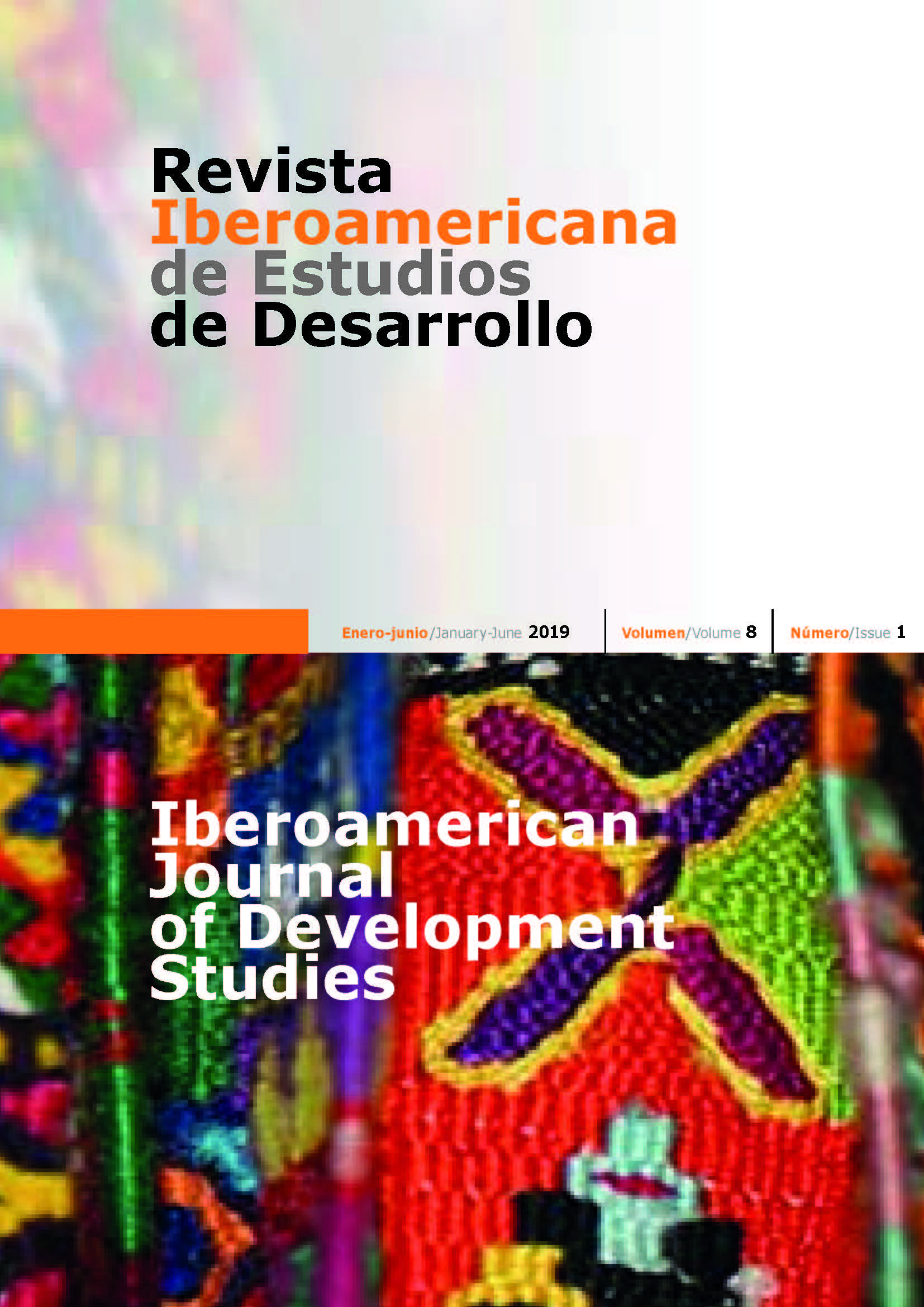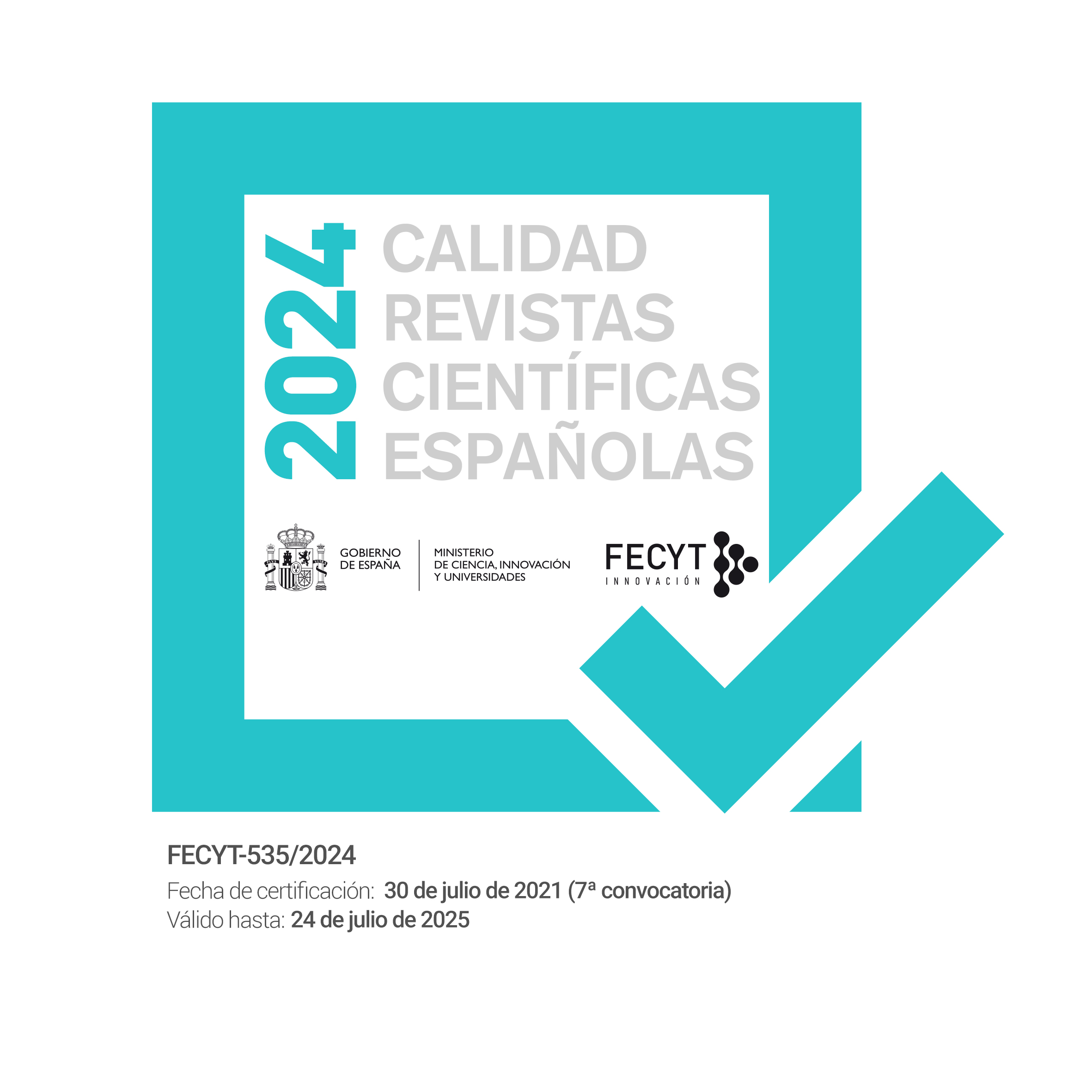Assessment approach of Development Education and Global Citizenship Education
DOI:
https://doi.org/10.26754/ojs_ried/ijds.326Keywords:
Evaluation of Development Education, Development Education and Global Citizenship Education, Diagnostic Assessment, Social and Citizenship Competence, Competence AssessmentAbstract
International Cooperation requires an assessment of Development Education as a guide to understanding, evaluating and making decisions that improve the efficacy and impact of its actions. This study focuses on demonstrating how a tool that is used in formal education can also be used to assess Development Education and Global Citizenship Education (DEGCE).
Through a descriptive analysis, we compared DEGCE with the social and citizenship competences assessed in the Spanish region of Andalusia. We found a strong relationship between them in terms of content, teaching-learning method, and evaluative approaches. This implies that the diagnosis of social and citizenship competences not only serves as a model, or example, for DEGCE assessment, but it also provides relevant and useful information to evaluate its present state.
Downloads
References
ANDALUSIAN AGENCY FOR EDUCATION ASSESSMENT, AGAEVE (2011b). Guía de Evaluación de la Competencia Básica Social y Ciudadana. Educación Primaria. Sevilla. Consejería de Educación de la Junta de Andalucía. http://www.juntadeandalucia.es/educacion/agaeve/docs/ped/Social_Ciudadana_Primaria_2010-11.pdf, accessed March 11, 2018.
ANDALUSIAN AGENCY FOR EDUCATION ASSESSMENT, AGAEVE (2011c). Guía de Evaluación de la Competencia Básica Social y Ciudadana. Educación Secundaria Obligatoria. Sevilla. Consejería de Educación de la Junta de Andalucía. http://www.juntadeandalucia.es/educacion/agaeve/docs/ped/Social_Ciudadana_Secundaria_2010-11.pdf, accessed March 11, 2018.
ANDALUSIAN AGENCY FOR INTERNATIONAL COOPERATION (2007). Plan Andaluz de Cooperación para el Desarrollo 2007 (PACODE 2007). Consejería de la presidencia. Junta de Andalucía.
ARDANAZ M (2015). El aula como espacio de aprendizaje global. El mundo como aula para el aprendizaje transformador: Doce pistas y una óptica. Revista internacional sobre investigación en educación global y para el desarrollo. May 7, pp. 68-87. http://educacionglobalresearch.net/wp-content/uploads/EGR07-02-Ardanaz-Castellano.pdf, accessed March 11, 2018.
ARGIBAY M, CELORIO G, CELORIO J (2009). Educación para la Ciudadanía Global. Debates y Desafíos. Hegoa, Bilbao.
ARGIBAY M, CELORIO G, CELORIO J, LÓPEZ DE MUNAIN A (2011). Educación para la Ciudadanía. Informe sobre la situación en ocho comunidades autónomas. Hegoa, Bilbao.
BASELGA P, FERRERO G, BONI A, ORTEGA ML, MESA M, NEBREDA A, CELORIO JJ, MONTERDE R (2004). Educación para el Desarrollo en el ámbito formal, espacio común de la Cooperación y la Educación. Universidad Politécnica de Valencia, Valencia.
BOLÍVAR A (2008). Ciudadanía y competencias básicas. Fundación Ecoem, Sevilla.
BOLÍVAR A (2010). Competencias básicas y currículo. Síntesis, Madrid.
BONI A, PÉREZ-FOGUET A (coords.) (2006). Construir la ciudadanía global desde la Universidad. Intermón Oxfam, Barcelona.
BOURN D (2014). The Theory and Practice of Global Learning. DERC Research Paper 11. IOE, London.
BOURN D (2015). The Theory and Practice of Development Education: A Pedagogy of Global Social Justice. Routledge, Abingdon.
CASANOVA MA (2012). La evaluación de competencias básicas. La Muralla, Madrid.
DECREE 230/2007 of July 31, through which the primary education teaching and planning in Andalusia are established. Boletín Oficial de la Junta de Andalucía, August 8, 2007, 156:9-15.
DECREE 231/2007 of July 31, through which the compulsory secondary education teaching and planning in Andalusia are established. Boletín Oficial de la Junta de Andalucía, August 8, 2007, 156:15-25.
DECREE 355/2010 of August 3, through which the 2010-2012 operational programme of development education is approved (POED 2010). Boletín Oficial de la Junta de Andalucía, August 17, 2010, 160:134-203.
EGEA A, BARBEITO C, MATAMOROS M, MASSIP C (2012). Competencias y EpD. La educación para el desarrollo en el currículum escolar desde la perspectiva de las competencias básicas. Edualter, Barcelona.
EUROPEAN COMMISSION (2012). Assessment of Key Competences in initial education and training: Policy Guidance. November 20. Strasbourg. SWD (2012) 371 final.
EUROPEAN COMMISSION/EACEA/EURYDICE (2017). Citizenship Education at School in Europe – 2017. Eurydice Report. Publications Office of the European Union, Luxembourg.
EUROPEAN COMMISSION/EACEA P9/EURYDICE (2009). National testing of pupils in Europe: objectives, organisation and use of results. Education, audiovisual and culture executive agency. P9 Eurydice. Ministry of Education, Brussels. https://publications.europa.eu/en/publication-detail/-/publication/df628df4-4e5b-4014-adbd-2ed54a274fd9, accessed March 11, 2018. DOI: 102797/3471.
EUROPEAN UNION (2006). Recommendation of the European Parliament and the Council of 18 December 2006 on the key competences for lifelong learning (2006/962/CE). DO L 394/10 of 30.12.2006.
FRICKE H-J, GATHERCOLE C, SKINNER A (2015). Monitoring Education for Global Citizenship: A Contribution to Debate. DEEEP, Brussels.
GALLARDO GIL M, MAYORGA FERNÁNDEZ M, SIERRA NIETO JE (2014). La competencia de «conocimiento e interacción con el mundo físico y natural»: análisis de las pruebas de evaluación de diagnóstico de Andalucía. Revista Eureka sobre enseñanza y divulgación de las ciencias, ISSN-e 1697-011X, vol. 11 2:160-180.
GEDVILIENE G, GERVIENE S, PASVENSKIENE A, ZIZIENE S (2014). The social competence concept development in higher education. European Scientific Journal, October. Vol.10 28. ISSN: 1857-7881.
GORDON J (2009). Key competences in Europe: Opening doors for lifelong learners across the school curriculum and teacher education. CASE Network Reports, No. 87.
HOSKINS B (2016). Paper commissioned for the Global Education Monitoring Report 2016, Education for people and planet: Creating sustainable futures for all. Towards the development of an international module for assessing learning in Global Citizenship Education (GCE) and Education for Sustainable Development (ESD): A critical review of current measurement strategies. UNESCO. http://unesdoc.unesco.org/images/0024/002456/245620e.pdf, accessed March 11, 2018.
INSTITUTO DE EVALUACIÓN (2009). Evaluación General de Diagnóstico 2009. Marco de Evaluación. Ministry of Education, Madrid.
KRAUSE J (2010). The European Development Education Monitoring Report. Development Education Watch. DEEEP, Brussels.
LAW 17/2007 of 10 December on Education in Andalusia, LEA. Boletín Oficial de la Junta de Andalucía, 26 December, 2007, 252:5-36.
MELBER H (2014). Whose world? Development, civil society, development studies and (not only) scholar activists. Third World Quarterly. Vol. 35, Issue 6, September:1082-1097. DOI https://doi.org/10.1080/01436597.2014.907730
MESA M (dir.) (2000). La educación para el desarrollo en la Comunidad de Madrid: tendencias y estrategias para el siglo XXI. Informe a la Dirección General de Cooperación y Voluntariado de la Comunidad de Madrid. Mimeo, Madrid.
MINISTRY OF EDUCATION, CULTURE AND SPORTS. GOVERNMENT OF SPAIN (2013). Information note about the decision by the State Council on the draft bill of the Organic Law on Educational Quality of 25 April 2013. https://www.mecd.gob.es/servicios-al-ciudadano-mecd/informacion-publica/audiencia-informacion-publica/cerrados/2013/lomce/20130426-dictamen-consejo-estado.html, accessed April 22, 2018.
MINISTRY OF FOREIGN AFFAIRS AND COOPERATION, MAEC (2013a). Government of Spain. IV Master Plan of Spanish Cooperation.
MINISTRY OF FOREIGN AFFAIRS AND COOPERATION, MAEC (2013b). Government of Spain. Spanish Cooperation Evaluation Policy.
MONARCA H (2015). Sistemas de evaluación: disputas simbólicas y configuración de prácticas educativas en los procesos de globalización y reforma del Estado. In: Monarca H (comp.). Evaluaciones externas: mecanismos para la configuración de representaciones en educación. Miño y Dávila, Buenos Aires, pp. 17-43.
MONARCA H, RAPPOPORT S (2013). Investigación sobre los procesos de cambio educativo: el caso de las competencias básicas en España. Revista de Educación. Extraordinario:54-78. DOI: https://doi.org/10.4438/1988-592X-RE-2013-EXT-256
MORILLAS MD (2006). Competencias para la Ciudadanía: Reflexión, Decisión, Acción. Narcea-MEC, Madrid.
ORDER ECD/65/2015 of January 21, describing the relations between the competences, contents and evaluation criteria of primary education, compulsory secondary education, and bachillerato. BOE of January 29, 2015, 25:6986-7003.
ORGANIC LAW 2/2006 of May 3, on Education, LOE. Boletín Oficial del Estado, May 4, 2006, 106:17158-17207 (Spain).
ORGANIC LAW 8/2013 of December 9, for the Improvement of Educational Quality, Lomce. Boletín Oficial del Estado, December 10, 2013, 295:97858-97921 (Spain).
ORTEGA ML, CORDÓN MR, SIANES A (coords.) (2013). Educar para la Ciudadanía Global en el espacio universitario. Buenas prácticas de colaboración entre ONGD y Universidad. Etea, Córdoba.
ORTEGA CARPIO ML (2008). Estrategia de Educación para el Desarrollo de la Cooperación Española. DGPOLDE. Secretary of State for International Cooperation. Spanish Ministry of Foreign Affairs and Cooperation, Madrid (Spain).
PASTOR-GARCÍA MI, LÓPEZ-TORO AA (2012). Educación para el Desarrollo en el ámbito formal: Actores e instituciones implicadas. Especial referencia al municipio de Rincón de la Victoria, Málaga. I Congreso Internacional de Estudios del Desarrollo, Santander, Spain, 14 to 16 November 2012.
PASTOR-GARCÍA MI, LÓPEZ-TORO AA (2014). Evaluación y análisis de la experiencia en Educación para el Desarrollo del ámbito Formal. II Congreso Virtual Internacional sobre Innovación Pedagógica y Praxis Educativa, Seville, Spain, 26, 27 and 28 March 2014, pp. 1827-1834, ISBN: 978-84-697-0399-1. https://drive.google.com/file/d/0Bw2Ce9zDtnSTWERCczVrSUZPZ2s/view?pli=1, accessed April 22, 2018.
PELLICER C, ORTEGA M (2009). La evaluación de las competencias básicas. Propuestas para evaluar el aprendizaje. PPC Editorial, Madrid.
PEPPER D (2011). Assessing Key Competences across the Curriculum and Europe. European Journal of Education, Research, Development and Policy. Vol. 46, Issue 3, September:335-353. DOI: https://doi.org/10.1111/j.1465-3435.2011.01484.x
RESOLUTION 57/254 United Nations General Assembly resolution 57/254 declaring the period 2005-2014 as the United Nations Decade of Education for Sustainable Development. 20 December 2002. http://www.un-documents.net/a57r254.htm, accessed April 22, 2018.
ROCA COBO E (2013). La evaluación diagnóstica de las competencias básicas. Síntesis, Madrid.
ROMERO-LEÓN JL (2016). Perspectiva europea de las Evaluaciones externas. El caso de España desde la LGE hasta la Lomce. Revista Educación, Política y Sociedad 1(2):183-196.
ROYAL DECREE 1513/2006 of December 7, through which the minimum primary education teaching is established. Boletín Oficial del Estado, December 8, 2006, 293:43053-43102. (Spain).
ROYAL DECREE 1631/2006 of December 29, through which the minimum compulsory secondary education teaching is established. Boletín Oficial del Estado, January 5, 2007, 293:677-773. (Spain).
ROYAL DECREE 126/2014 of February 28, through which the basic primary education curriculum is established. BOE, March 1, 2014, 52:19349-19420 (Spain).
ROYAL DECREE 1105/2014 of December 26, through which the basic compulsory secondary education and bachillerato curriculum is established. BOE, January 3, 2015, 3:169-546 (Spain).
RUIZ-VARONA JM, CELORIO G (2012). Una Mirada sobre las miradas. Los estudios de diagnóstico en Educación para el Desarrollo. Revista Electrónica Interuniversitaria de Formación del Profesorado. Vol. 15 2:79-88. http://dialnet.unirioja.es/servlet/articulo?codigo=4040128, accessed April 22, 2018.
TIANA A (2014). Veinte años de políticas de evaluación general del sistema educativo en España. Revista de Evaluación de Programas y Políticas Públicas 2:1-21.
UIS (2014) (version 2). Towards indicators for a post-2015 education framework. Technical Advisory Group of the EFA steering Committee. UNESCO INSTITUTE FOR STATISTICS. http://unesdoc.unesco.org/images/0023/002306/230611e.pdf, accessed April 22, 2018.
UNESCO (2012). Education for Sustainable Development. Sourcebook. http://unesdoc.unesco.org/images/0021/002163/216383e.pdf, accessed April 22, 2018.
UNESCO (2013). Proposal for a global action programme on Education for Sustainable Development as follow-up to the United Nations decade of Education for Sustainable Development after 2014. http://unesdoc.unesco.org/images/0022/002243/224368e.pdf, accessed April 22, 2018.
UNESCO (2014a). Global Education for All Meeting UNESCO, Muscat, Oman, 12-14 May 2014. GEM Final Statement. The Muscat Agreement. http://www.unesco.org/new/fileadmin/MULTIMEDIA/FIELD/Santiago/pdf/Muscat-Agreement-ENG.pdf, accessed April 22, 2018.
UNESCO (2014b). Developing new ways of measuring educational results- a key to success. https://en.unesco.org/news/developing-new-ways-measuring-educational-results-key-success, accessed April 22, 2018.
UNESCO (2014c). Global Citizenship Education. Preparing learners for the challenges of the twenty-first century. UNESCO, Paris (France). http://unesdoc.unesco.org/images/0022/002277/227729E.pdf, accessed April 22, 2018.
UNESCO (2015). Global Citizenship Education: Topics and Learning Objectives. UNESCO, Paris (France). http://unesdoc.unesco.org/images/0023/002329/232993e.pdf, accessed April 22, 2018.
UNITED NATIONS (2014). Report of the Open Working Group of the General Assembly on Sustainable Development Goals. http://www.un.org/ga/search/view_doc.asp?symbol=A/68/970&referer=/english/&Lang=E, accessed April 22, 2018.
VÁZQUEZ P, ORTEGA JL (2010). Competencias Básicas: Desarrollo y evaluación en Educación Primaria. Wolters Kluwer, Madrid.
Downloads
Published
How to Cite
Issue
Section
License
Copyright (c) 2019 M. Inmaculada Pastor-García, Alberto A. López-Toro, Felix Moral-Toranzo

This work is licensed under a Creative Commons Attribution-NonCommercial-NoDerivatives 4.0 International License.








